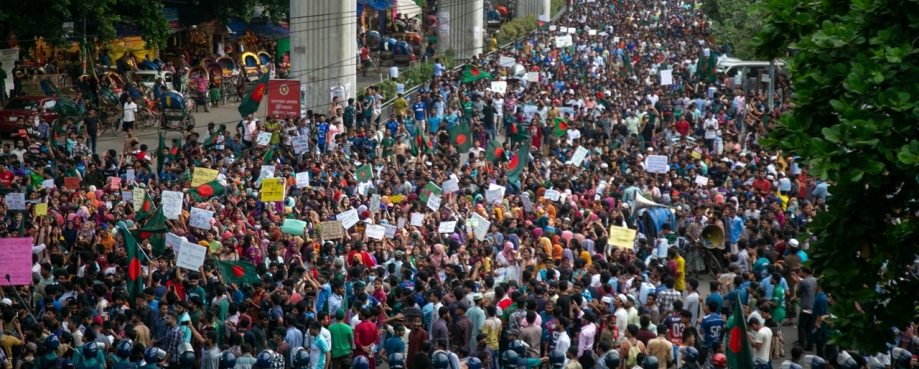
In recent weeks Dhaka has faced the most violent mass protests in a decade. On Saturday, Police imposed a strict “shoot -on-sight” curfew across Bangladesh, as military forces patrolled parts of the capital. Clashes between protesters, the police and military forces have left thousands injured and killed around 150, though the government has refused to release official data on the death toll. Our thoughts are with all those affected by these terrible events.
We are gathering information to better assess the situation and its impacts on workers in supply chains. However, communications with ETI Bangladesh over the last few days have been extremely difficult due the communications blackout in place, which includes suspension of internet, mobile data, and text message services.
While the Bangladesh Supreme Court has announced it will remove most of the job quotas that led to these widespread protests, the situation is still very volatile. Workers may be directly or indirectly impacted by the unrest, for example as they travel to and from work, or if they or their relatives have been injured or killed during this unrest.
As a result, factories and production schedules may face disruption and necessary adaptations to working patterns should be expected.
Considerations for affected businesses:
- Responsible businesses sourcing from or operating in Bangladesh should adjust their expectations and purchasing practices to adapt to these exceptional circumstances. For example, production timelines may need to be extended due to factory closures resulting from unrest and state-imposed curfews.
- When communication channels are re-established, responsible businesses sourcing from or operating in Bangladesh should engage with their suppliers to understand the potential impacts of this unrest on their orders and agree on adjustments that are manageable and realistic, and in line with ETI’s recommended responsible purchasing practices.
ETI will continue to monitor these developments, keeping our members informed on the evolving situation and expectations of responsible business during periods of unrest.
